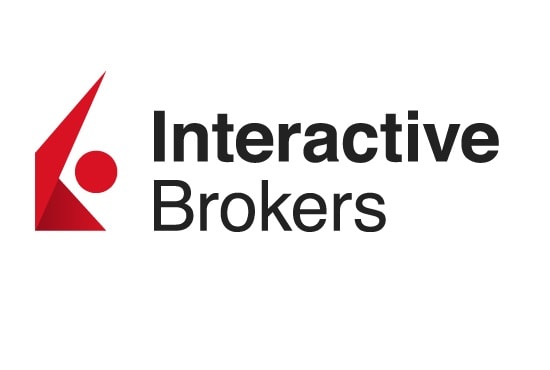FIdelity | Robinhood | |
Monthly Fee | 0% – 1.04%
Fidelity Go® Robo advisor: $0: under $25,000, 0.35%/yr: $25,000 and above
Fidelity® Wealth Management dedicated advisor: 0.50%–1.50%
Fidelity Private Wealth Management® advisor-led team: 0.20%–1.04%
| $0 – $6.99
$0 for basic account, $6.99 for Robinhood Gold |
Account Types | Brokerage, Retirement, Wealth Management | Brokerage, Retirement, Crypto |
Savings APY | 3.94% | 1.00% – 4.50%
You’ll earn 0.01% Annual Percentage Yield (APY) as a Robinhood Gold member on your uninvested brokerage cash that is swept to the banks in our program. |
Minimum Deposit | $0 – $2M
No minimum for Fidelity Go® and brokerage, $500,000 for Fidelity® Wealth Management, $2 million for Fidelity Private Wealth Management®
| $0 |
Best For | Technical Traders, High Net Worth, Robo Advisor | Active Traders, Tech Savvy Investors |
Read Review | Read Review |
Fidelity vs Robinhood: Compare Investing Features
Robinhood prioritizes simplicity and cost-efficiency, making it an excellent choice for new investors, while Fidelity provides a more comprehensive and flexible trading environment that caters to a wider array of investment strategies.

Fidelity's platform is feature-rich, with advanced research tools, educational resources, and access to professional advisory services.
Robinhood | Fidelity | |
|---|---|---|
Investing Options | Over 5,000 securities, most U.S. stocks and ETFs listed on U.S. exchanges | Full Access To Almost Any Asset |
Investing Types | Stocks, Options, Futures, ETFs, Crypto, Margin, Fractional Shares | Stocks, Options, Margin, ETFs, Bonds & CDs, Precious metals, Crypto, Mutual Funds |
Automated Investing | No | Yes |
Paper Trading | No | No |
Tax Loss Harvesting | No | No |
IPO Access | Yes | Yes |
Dedicated Advisor | No | Yes (Additional Fee) |
Robinhood offers features like fractional shares, crypto trading, and 24-hour market access, catering to more active traders who appreciate real-time, self-directed investing.

However, it lacks the breadth of asset classes and advisory services found at Fidelity, making it less suitable for those seeking comprehensive financial planning and long-term investment strategies.
-
Self Investing And Trading Options
There is no clear winner when it comes to self-investing and trading options. Fidelity wins if you need a broad range of investment types, deep analysis, and advanced research. Robinhood is our take regarding usability, simplicity, and trading fees.

Fidelity excels in providing a broad array of investment options, including stocks, ETFs, mutual funds, options, and bonds, along with sophisticated research tools and analytics.

For fundamental traders, Fidelity provides an extensive suite of research tools that go beyond basic stock information. Users can access in-depth financial statements, analyst ratings, earnings reports, and valuation metrics for individual companies.

Robinhood allows users to buy and sell stocks, ETFs, options, and cryptocurrencies without incurring trading fees.
The app includes customizable watchlists, real-time market data, and easy-to-set alerts, making it convenient for users to manage their investments on the go

The introduction of Robinhood Gold adds another layer of functionality for users willing to pay a subscription fee.
With Robinhood Gold, investors gain access to premium features like higher instant deposit limits, margin trading, and advanced market data, including Nasdaq Level 2 quotes.
-
Retirement Accounts
Fidelity is our winner here as it provides more comprehensive and well-supported retirement planning environment, ideal for those who want detailed planning and a wide range of investment options.
Fidelity offers a broad range of retirement account options, including Traditional, Roth, and Rollover IRAs, as well as SEP and SIMPLE IRAs for the self-employed. Fidelity's retirement accounts are supported by extensive planning tools, educational resources, and access to professional advice.
The platform also provides comprehensive retirement calculators and the ability to consult with advisors for personalized retirement strategies.

Robinhood, on the other hand, focuses on simplicity and ease of use in its retirement offerings. It provides Traditional and Roth IRAs with the unique feature of IRA contribution matching, even though it's not a workplace retirement plan. This feature is available to all users, with higher match rates for Robinhood Gold members.
However, it lacks the depth of retirement planning tools and advisory services that Fidelity offers.
-
Fees
Robinhood wins when it comes to fees.
Fidelity offers $0 commissions on online stock, ETF, and mutual fund trades, with options contracts costing $0.65 per contract.
Mutual funds fees can range from be as high as $75 for purchasing non-Fidelity funds, but there are many others with no fees at all.
Fidelity | Robinhood | |
|---|---|---|
Fees | 0% – 1.04%
Fidelity Go® Robo advisor: $0: under $25,000, 0.35%/yr: $25,000 and above
Fidelity® Wealth Management dedicated advisor: 0.50%–1.50%
Fidelity Private Wealth Management® advisor-led team: 0.20%–1.04%
| $0 – $6.99
$0 for basic account, $6.99 for Robinhood Gold |
Robinhood stands out for its low-cost structure, offering commission-free trading on stocks, ETFs, and options and there are no account minimums or inactivity fees.
However, there is a monthly service for the Gold service, which provides more options and benefits for customers.
-
Cash Management And Savings Rates
When it comes to banking options, Fidelity checking and deposit and cash management options win, while Robinhood Gold customers can earn higher savings rates.
Fidelity Cash APY | Robinhood | |
|---|---|---|
Savings APY | 3.94% | 1.00% – 4.50%
You’ll earn 0.01% Annual Percentage Yield (APY) as a Robinhood Gold member on your uninvested brokerage cash that is swept to the banks in our program. |
Fidelity’s Cash Management Account stands out for its flexibility and comprehensive features. For those looking for pure savings, Fidelity offers the FDIC Insured Deposit Sweep Program, but the rates are not so competitive.
However, customers can secure higher rates with Fidelity CDs or the Fidelity Government Money Market Fund.
Fidelity’s account comes with no fees or minimums and offers unlimited ATM fee reimbursements, Bill Pay, mobile check deposit, and a debit card with digital wallet compatibility.

Unlike Fidelity, Robinhood lacks checking account features but do offer a high savings rate of 4.00% and rewards credit card that is exclusive for Gold members.
There is 5% cash back if you book travel using the Robinhood travel portal and 3% on all other purchases.
Fidelity: Which Features Are Unique?
Here are some of the features that investors can find only with Fidelity:
-
Automated Investing
One of the strong advantages of Fidelity is their ability yo provide a good solution for hybrid investors and those who prefer a passive appraoch.
Fidelity's robo-advisor, Fidelity Go, offers a well-rounded, user-friendly solution for investors seeking a hands-off approach to portfolio management.

Fidelity Go builds and manages a diversified portfolio tailored to the investor's goals and risk tolerance. It leverages low-cost Fidelity Flex mutual funds, which carry no expense ratios, to construct portfolios.
The service also includes automatic rebalancing, ensuring that the portfolio stays aligned with the investor’s objectives as market conditions chang
For accounts under $25,000, Fidelity Go does not charge any advisory fees, making it an attractive option for smaller investors.
-
Wealth Management Options
Fidelity also provides two main tiers of wealth management: Wealth Management and Private Wealth Management.
Wealth Management is designed for clients with a minimum of $500,000 in investable assets. It includes a dedicated advisor who works closely with clients to develop a customized financial plan, focusing on areas such as retirement, estate planning, tax strategies, and investment management

The Private Wealth Management requires a minimum of $2 million in managed assets or $10 million in total assets with Fidelity.
This service offers a more bespoke approach, with access to a team of specialists who provide in-depth advice on complex financial matters, including philanthropy, tax optimization, and legacy planning.
Robinhood: Which Features Are Unique?
Here are some of the features that investors can find only with Robinhood:
-
Various Options For Crypto Trading
Robinhood allows users to buy, sell, and hold a select number of popular cryptocurrencies, including Bitcoin, Ethereum, Dogecoin, and a few others, all within the same app used for stock and ETF trading.
This integration makes it easy for users to manage both traditional investments and cryptocurrencies in one place
Bottom Line
While Fidelity excels in providing a comprehensive, research-driven platform for diversified long-term investing, Robinhood shines in offering a straightforward, cost-effective solution for active traders who prioritize ease of access and the ability to trade on the go.
Compare Robinhood Side By Side
Schwab offers more options for investors, including robo advisors and wealth management, while Robinhood is best for beginners and traders.
Schwab vs. Robinhood: Which Brokerage is Right for You?
Vanguard offers more options for investors, including retirement, robo advisors, and wealth management, while Robinhood is best for traders.
Merrill Edge is best for long-term investments, including retirement, while Robinhood is perfect for active traders who value simplicity.
Merrill Edge vs. Robinhood: Compare Brokerage Account Options
JP Morgan wins when it comes to fundamental investing tools, but Robinhood is better for technical analysis and trading. Here's why:
J.P. Morgan Self-Directed Investing vs. Robinhood : Compare Brokerage Accounts
Robinhood is an excellent choice for beginner and casual investors, but IBKR is better suited for experienced investors and advanced traders.
Interactive Brokers vs. Robinhood: Compare Brokerage Account Options
Robinhood is best for low-cost platform for various trading needs, including Crypto. Etrade is better for one stop shop, including banking.
Robinhood is best for traders looking for easy, cost-free trading, while Stash is great for beginner investors who need a financial management tool
While Robinhood caters to traders and advanced investors, Acorns focuses on automated investing and banking. Here's our full comparison.
Webull is better suited for experienced traders needing advanced tools, whereas Robinhood caters to beginners and those who prefer simplicity.
Review Brokerage Accounts
Fidelity vs. Competitors: How Does It Stack Up?
Both Schwab and Fidelity offer great options for traders, plans for wealth management, and sophisticated auto-investing platforms.
Fidelity excels in investment options, wealth management, and retirement planning. Webull trading platform is one of the most fascinating we've seen.
Both platforms have great options for investors, but Fidelity excels in comprehensive retirement planning and cash management options
Interactive Brokers vs. Fidelity: Which Brokerage Suits Your Investing Style?
Fidelity is our winner due to its investment options, research tools, advanced trading features, and excellent retirement planning services.
J.P. Morgan Self-Directed Investing vs. Fidelity : A Side-by-Side Comparison
Fidelity has more investing options, cheaper robo-advisor, and more banking options. Merrill is better for Bank of America customers.
Fidelity in retirement planning and personalized wealth management, while E-Trade stands out with its research tools and competitive savings rates
Fidelity is our choice due to its better retirement options and more extensive trading app. But, the differences are insignificant.


